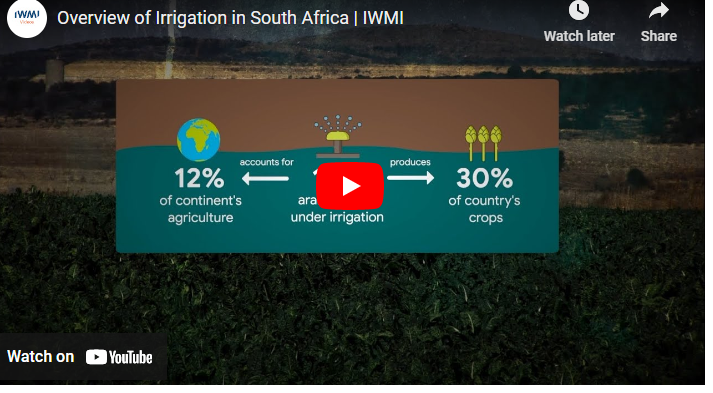Food and drink manufacturing in the United Kingdom generates about £120 billion in annual revenue, with farming as its foundation. British farming accounts for 64% of the food consumed in the United Kingdom, an increase of 2% over last year.
So the question is, how can I become a farmer in the UK? To start a farming business in the United Kingdom, what you need is, a piece of land, a niche in farming, registering with the appropriate body, getting the right information on your selected area of interest, then you can start your farming career extensively.
So in today’s guide, we will be writing extensively on how to venture into agricultural business in the UK and all you need to know to get started as a beginner or how to ameliorate what you are doing before as a practicing farmer.
How To Start Farming In UK Beginners Guide
Agriculture is a broad spectrum field that requires one to be decisive on which area interests them the most, and areas that you have the capacity to start your farming career, so without much ado, here are the steps needed to start your career as a farmer in the United Kingdom;
Step 1: Decide Area Of Specialization:
Agriculture represents a wide-ranging and diverse industry that offers a plethora of opportunities to explore. Within this sector, you can delve into various domains, spanning from animal husbandry to crop cultivation. These expansive categories encompass numerous specialized subfields that you can venture into.
These options span from cultivating an assortment of crops to raising diverse livestock. Alternatively, you could specialize in Agrotech, which encompasses tasks such as securing capital for farmers’ startups and developing agricultural equipment to streamline farming processes. The possibilities are diverse and plentiful. As you continue reading, I will provide insights into how to select your area of specialization.
Read Also: [Complete Guide] 50 Gardening Tips For Beginners
As previously mentioned, the realm of farming is multifaceted, with livestock farming and crop cultivation being the most prominent categories. Identifying your specific area of interest is paramount before embarking on a farming venture. This choice will significantly influence the kind of information you need, guide your farming decisions, and shape the trajectory of your agricultural journey.

TYPES OF FARMING BUSINESS IN THE UNITED KINGDOM
In the United Kingdom, there are two primary categories of farming: Animal Husbandry and plant cultivation.
A. Animal Husbandry:
This involves the rearing and raising of various animals, including chickens, goats, cattle, fish, pigs, and more. So, if you’re considering where to begin, here are a few options I’ve selected, along with their pros and cons:
-
Poultry Farming:
Poultry farming encompasses the raising of chickens, ducks, or other birds for their meat and eggs. It’s a versatile enterprise that can be pursued on either a small or large scale. Chickens are commonly raised for meat (broilers) or eggs (layers). Ducks are also raised for both meat and eggs. Poultry farming offers a relatively swift turnover, with a consistent demand for poultry products.
Read Also: 12 Poultry Farming Tips For Beginners [Success Guide]
Pros:
- Reasonable startup costs and rapid turnover.
- High demand for eggs and poultry meat.
- Feasible to manage on a smaller scale.
Cons:
- Essential disease management.
- Initial investment in housing and equipment.
- Fluctuations in demand based on seasons.
-
Aquaculture (Fish Farming):
Aquaculture, also known as fish farming, involves cultivating fish in controlled environments such as ponds, tanks, or even underwater cages. It’s an environmentally sustainable method of meeting the increasing demand for fish protein. Diverse fish species, such as tilapia, catfish, and trout, can be raised based on market preferences and regional conditions.
Pros:
- Rising demand for fish protein.
- Efficient utilization of space with high stocking densities.
- Range of species choices aligned with market preferences.
Cons:
- Vital maintenance of water quality.
- Need for understanding fish husbandry.
- Initial investment in pond/tank infrastructure.
-
Beekeeping (Apiculture):
Beekeeping entails the care and management of bee colonies for the extraction of honey, beeswax, and royal jelly. Bees play a pivotal role in pollinating crops, making beekeeping vital for agriculture. This pursuit can be adapted to a small scale, making it accessible even to those with limited space.
Read Also: 12 Farming Tips For Beginners [Practices & Guide]
Pros:
- Modest space requirement.
- Stable market for honey and other bee products.
- Beneficial for ecosystem health through pollination.
Cons:
- Learning curve in beekeeping techniques.
- Necessity for effective bee health management.
- Susceptibility to pest and disease issues.
- Goat Farming:
Goat farming involves raising goats primarily for meat (chevon or goat meat), as well as other products like milk and fiber. Goats are adaptable creatures that can thrive in diverse environments. They hold particular value in areas with limited grazing resources.
Goat farming presents the potential for profit through the sale of meat and various goat-derived products. To initiate a goat farming venture in the UK, you can follow the provided guide.
Read Also: 25 Common Diseases Of Goats And How To Treat Them
Pros:
- Adaptability to varying environments.
- Growing demand for goat meat (chevon).
- Efficient space utilization compared to larger livestock.
Cons:
- Requirement for appropriate grazing and housing facilities.
- Essential health management, particularly during kidding seasons.
- Exposure to market competition and pricing fluctuations.
5. Dairy Farming
Dairy farming stands as a significant and enduring pillar of the agricultural landscape in the United Kingdom. With its verdant pastures and favorable climate, the UK has fostered an environment conducive to dairy production.
This sector entails the management and care of cows for the production of milk and dairy products. The UK’s dairy industry not only meets domestic demands but also contributes to the global dairy market.
Pros:
- Steady Demand: Dairy products, including milk, cheese, and butter, form an integral part of the UK’s culinary culture. The consistent demand for these staples ensures a stable market for dairy farmers.
- Diverse Products: Dairy farming offers a range of opportunities for value addition. Beyond milk, farmers can produce an array of dairy products, from artisanal cheeses to yogurt and ice cream, catering to varying consumer preferences.
- Rural Economy Support: Dairy farming bolsters rural economies by creating jobs and supporting ancillary industries such as feed suppliers, equipment manufacturers, and processors.
- Land Utilization: Dairy farming promotes efficient land use through pasture-based systems. Grazing cows on lush fields can help maintain ecological balance and preserve the rural landscape.
- Community Bonds: Dairy farming often fosters strong community bonds, as local producers supply fresh dairy products to nearby consumers, establishing a direct connection between farmers and consumers.
Cons:
- Price Fluctuations: The dairy industry is susceptible to price fluctuations due to factors like global supply and demand dynamics, which can impact farmers’ profitability.
- Input Costs: Rising costs of feed, equipment, and labor can challenge the economic viability of dairy farming, particularly for small-scale operations.
- Environmental Impact: Intensive dairy farming practices can result in environmental concerns, including greenhouse gas emissions and water pollution. Sustainable practices are essential to mitigate these effects.
- Animal Welfare: Maintaining high standards of animal welfare is paramount in dairy farming. Overcrowding, inadequate housing, and improper care can lead to ethical concerns and public backlash.
- Regulatory Compliance: The dairy industry is subject to various regulations related to milk quality, food safety, and animal welfare. Adhering to these standards requires careful management and investment.
Additional areas include:
6. Snail Farming
7. Ostrich Farming9.
8. Pig Farming
9. Cattle Farming
10. Cricket Farming
11. Grasscutter Farming:
Before embarking on any animal-related business, thorough research, planning, and an understanding of industry regulations are pivotal. Each business endeavor presents distinct challenges and profitability potential. Factors such as investment costs, required expertise, market demand, and ethical considerations should be weighed carefully to make well-informed decisions.
B. Plant Cultivation
Another area in the farming industry is the plant cultivation. Plant cultivation involves the nurturing and cultivation of various types of plants, including corn, millet, soybeans, palm fruit, cocoa, and many others. Within the United Kingdom, there are several lucrative crops that farmers can engage with, each offering unique opportunities and challenges.
1. Avocado:
Avocado farming has garnered considerable attention in the United Kingdom owing to its strong demand both domestically and internationally. Avocado trees thrive in the UK’s diverse climatic conditions and are known for their nutritious fruit. For those seeking to delve into avocado farming, a comprehensive guide is available that covers the essentials of starting an avocado farming venture in the UK.
To learn details on how to get started, read more about Avocado farming here
Pros:
- Escalating global demand for avocados.
- Favorable climate conditions in various regions of the UK.
- Extended harvesting period and consistent income prospects.
Cons:
- Initial investment required for tree planting and upkeep.
- Vital irrigation and disease management practices.
- Price volatility stemming from market fluctuations.
2. Tea:
The cultivation of tea holds a significant place in the United Kingdom, with the nation being recognized as a substantial tea exporter worldwide. The UK’s highlands provide an advantageous environment for successful tea farming.
Pros:
- Established industry with accessible markets.
- Steady income generated through periodic tea plucking.
- Opportunities for participation in tea cooperatives.
Cons:
- Prudent soil management and pruning practices are essential.
- Exposure to oscillating global tea prices.
- Susceptibility to weather conditions.
3. Horticultural Crops (e.g., French Beans, Snow Peas):
The United Kingdom is known for its export of fresh vegetables such as French beans and snow peas to global markets. These horticultural crops benefit from the country’s climate and cater to the demand for produce during off-season periods.
Pros:
- High-value crops with lucrative export potential.
- Short maturity periods enable swift returns.
- Growing international demand for fresh produce.
Cons:
- Stringent quality criteria for export markets.
- Need for effective pest and disease management.
- Market demand and price fluctuations.
4. Mango:
Mangoes, cherished for their delightful taste and nutritional value, thrive in various agro-ecological zones across the United Kingdom. The country’s regions allow for year-round mango cultivation.
Pros:
- Substantial demand for both local consumption and export.
- Diverse mango varieties with varying harvesting seasons.
- Potential for value-added products like dried mangoes.
Cons:
- Seasonal fruit-bearing necessitating income planning.
- Necessity for vigilant pruning and disease control.
- Competition from other mango-producing nations.
5. Macadamia Nuts:
Macadamia nuts have emerged as a profitable crop in the United Kingdom due to their rising demand both locally and internationally. The trees flourish in regions characterized by suitable climates.
Pros:
- Nuts with escalating global demand and high value.
- Long-lasting productive lifespan of macadamia trees.
- Prospects for value addition through processes like nut processing.
Cons:
- Initial investment required for tree planting and maintenance.
- Considerable time for trees to mature.
- Vulnerability to pests and weather-related fluctuations.
Additional areas worth considering:
- Tomato Farming:
- Pepper Farming
- Bean Farming:
- Flower farming
When contemplating entry into the world of crop farming, meticulous evaluation of factors such as soil suitability, climate conditions, market demand, and resource access is crucial. Each crop presents its own array of challenges and potential for profitability. In-depth research and thoughtful planning constitute the foundation for triumph in the chosen agricultural pursuit.
Step 2: Learn About Your Chosen Area
The next step in starting a farm comes after you’ve raised the necessary funds and chosen a location for your operation. It’s now time to do some research about the farming niche you’ve chosen.
Read Also: How To Start Farming In USA [Beginners Guide]
You can learn about your chosen field by reading books, watching YouTube videos, or visiting a farm in your neighborhood.
Step 3: Get Funds to start your farm
No matter what kind of business you run, you’ll always require funding to keep it going. You can use this money for a variety of purposes, including purchasing stock, paying your employees, or fixing your farm tools and equipment.
Also, you may need to obtain permits, and obtain necessary documentation, All of these requires fund to get started, There are various ways you can get fund as a starting farmer or practicing farmer, you may approach different agricultural loan offering agencies, you may apply for grants, family support, personal savings, or bank loans which will all be used to fund your farming enterprise.
Read Also: Top 10 Biggest Farms In The World
Step 4: Buy Farmland
When contemplating the purchase of farmland, there are numerous aspects to take into account. Does it have good soil and is it easily accessible by main highways? If so, is it a good fit for your crops or animal? The list goes on.
Step 5: Draw a Business Plan
The next step is to sketch up your farm’s business plan and envision what it will look like. If you need help creating a business plan for a farm, please read more about farm business plans here
Step 6: Start land preparation
You’ll need to clear the land of trees and other obstructions.
Step 7: Start Farming
It’s now time to become serious about your farming endeavors and stick with your business objectives.
Read Also: Top 8 Biggest Agricultural Companies In USA
What Does the UK Farming Sector Look Like?
The UK farming sector is a diverse and dynamic landscape characterized by a range of agricultural activities. It encompasses a variety of agricultural practices, including crop cultivation, animal husbandry, and agri-business ventures. The sector is deeply intertwined with the country’s history, culture, and economy.
Farming contributes significantly to the United Kingdom’s Gross Domestic Product (GDP). While the exact percentage may vary from year to year, the agricultural sector consistently makes a notable contribution to the UK’s economy.
This contribution encompasses both crop cultivation and livestock production, reflecting the sector’s integral role in providing food, raw materials, and economic activity. The farming sector’s GDP contribution underscores its importance as a foundational pillar of the UK’s overall economic landscape.
What Are The Licenses Needed To Start Farming In the UK?
When starting a farm, you’ll have to comply with a slew of rules and regulations that you’ll have to become familiar with. Depending on the type of farm you run, you may have to adhere to a different set of regulations.
According to the laws in place for the health and safety of both the animals and crops on your farm, you must abide by them. To get to know about these laws, you need to visit Department for Environment, Food & Rural Affairs” (DEFRA).
This government department is tasked with overseeing various aspects related to agriculture, food production, environmental protection, and rural affairs in the UK. It plays a crucial role in formulating policies, regulations, and initiatives that impact the farming sector and its integration with broader environmental and rural considerations.
Planning permission:
You must get permission from your local government if you want to change the use of your farm or property or build a house. Registration with the DVLA is required for all farm vehicles and the vehicles must meet the health and safety criteria.
Registration with the Rural Land Register is a requirement for land used for agricultural reasons. You must register with the Food Standards Agency (FSA) if your farm produces milk products in order to ensure food safety in the United Kingdom.
Health and safety:
On farms, the Health and Safety Executive has issued guidelines for agricultural health and safety, and you must follow them (HSE). Such as checking out structures or dangerous chemicals or livestock handling, Risk assessments are required when they’re necessary.
Find out if the area and soil you’ll be farming on can support the type of veggies you wish to plant. Consider the irrigation method you’ll need to irrigate your vegetables.
Be clear on what type of product you plan to plant, and make sure you have all the necessary certifications in place if you plan to grow organically
Examine the number of distinct cultivars and types of each vegetable you intend to cultivate.
How much money do you need to start a farm UK?
Getting started with a farming business in the UK will cost an average of £21,500 or above.
How many acres qualify as a farm UK?
In UK you will need about 12 acres for your farm to qualify to be called a farm.
How much does a farmer earn in the UK?
Averagely a UK farmer earns at least 60,000 Euros and above.
Conclusion
So, getting started as a Farmer in London or anywhere in the Nation may not be easy at first, but you must all know that with dedication and a clear written vision, you can start your own farm. So, if there is other information you need to know, kindly let me know via the comment section below.




Hi agrolearner.com admin, Great post!
Thank you
Hi David,
My name is Ripendra maharjan.
I also want to start agriculture farm business. Can you please guide me?
Can I have your contact details email and mobile number please?
Thanks